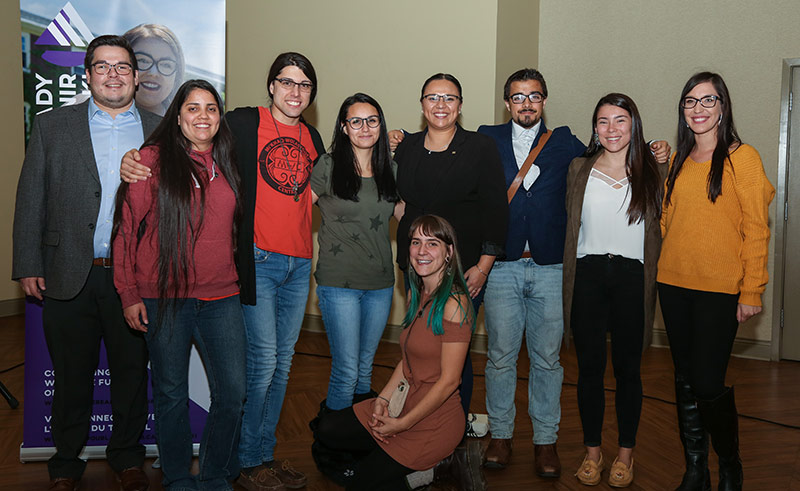UNB hosts launch of Future Wabanaki
Author: UNB Newsroom
Posted on Nov 6, 2019
Category: UNB Fredericton

As part of Atlantic Canada Career Week, the provincial government announced the launch of Future Wabanaki at UNB Fredericton on Nov. 6 with representatives from the University of New Brunswick, St. Thomas University, Mount Allison University and the Université de Moncton participating in the initiative.
Future Wabanaki will help Indigenous university students become job-ready while supporting employers in finding and recruiting qualified employees. Future Wabanaki aims to provide Indigenous students with on-the-job experience prior to graduation, to improve the job readiness of students related to their field of study and support growth and recruitment and retention for employers.
“Through Future Wabanaki, we are able to strengthen UNB’s commitment to the TRC Calls to Action by valuing Indigenous knowledges and ways of knowing by enhancing Indigenous students’ access to experiential education,” says Dr. Paul Mazorelle, president and vice-chancellor of UNB.
“In our first year, UNB was able to provide culturally appropriate workplace opportunities for 17 Indigenous students. We look forward to growing and strengthening opportunities for Indigenous students into the future.”
Future Wabanaki follows the provincewide model of Future NB, which was created earlier this year as a collaborative partnership between New Brunswick’s universities, public and private sectors and government to provide experiential learning opportunities for New Brunswick university students.
Students can benefit from funding to support experiential learning opportunities through wage subsidies for work experience with non-governmental organizations, not-for-profit businesses and small and medium enterprises. The Student Experiential Learning Fund provides student support bursaries to cover costs associated with experiential learning including transportation, accommodation, relocation and moving expenses; training, clothing and equipment may all be eligible expenses.
“Finding more people for the workforce is a challenge for the province, and this initiative will be part of the solution,” said Post-Secondary Education, Training and Labour Minister Trevor Holder.
“Being a partner in Future Wabanaki is one of the ways we can prepare Aboriginal youth for rewarding careers while developing skilled employees for the province’s labour force.”
UNB has a long history of exceptional experiential learning and is home to one of the country’s longest running co-op programs. By providing students new opportunities to strengthen real-life and work experiences to enhance their career development, UNB is dedicated to making experiential education available for every UNB student by offering experiential opportunities in each faculty.
Experiential education connects UNB with its communities, which helps to create strong partnerships and solve problems in creative and innovative ways. The Promise Partnership program supports some of the most vulnerable children in Saint John’s priority neighbourhoods.
UNB’s experiential learning provides students with tangible, real-world applications to apply and enhance their learning through curricular and co-curricular opportunities, co-ops, internships, clinical placements, applied research and community-based learning.
Media contacts
- Paisley Sibbald, University of New Brunswick, paisley.sibbald@unb.ca
- Leigh Watson, Department of Post-Secondary Education, Training and Labour, leigh.watson@gnb.ca
Photo: Students gather for a photo at Future Wabanaki launch at UNB on Nov. 6, 2019.
